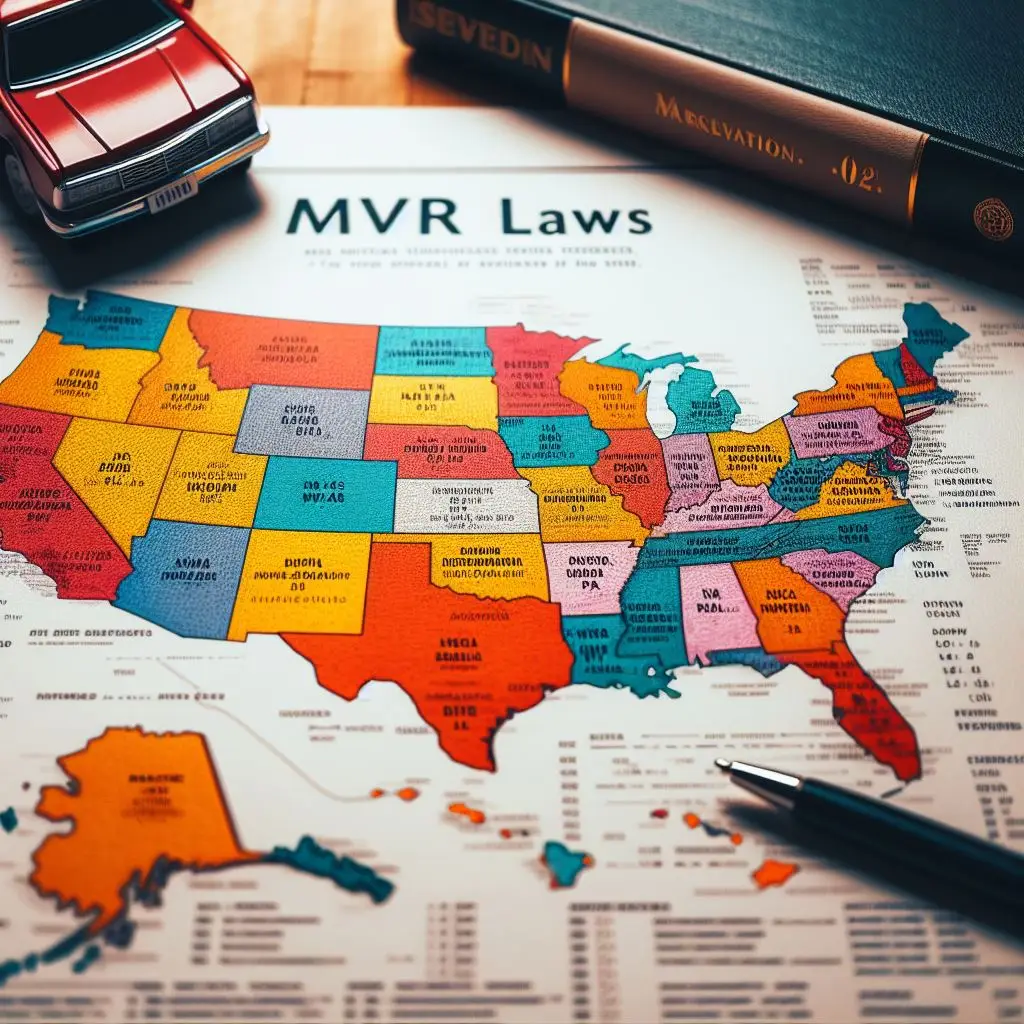Introduction
The Importance of Background Checks
Background checks are crucial for Florida employers looking to mitigate risks, ensure workplace safety, and make informed hiring decisions. By thoroughly vetting potential employees, employers can avoid costly mistakes that might harm the company or endanger its workforce. These checks reveal critical information about a candidate’s past and help assess their suitability for specific organizational roles. Employers find background checks invaluable in maintaining a secure and productive work environment.
Unique Challenges in Florida
Navigating the background check landscape in Florida can be challenging due to state-specific laws and regulations. These laws are designed to balance the safety and integrity of the workplace with the rights and privacy of individuals. Employers must stay informed about these regulations to manage their hiring processes legally and effectively. Understanding Florida’s unique legal requirements is essential for maintaining compliance and protecting the organization from potential legal issues.
Overview of this Guide
This guide aims to comprehensively navigate the complexities of Florida background checks. It covers everything from legal compliance and process optimization to choosing the right service provider. By the end of this guide, employers will have a clearer understanding of conducting background checks efficiently and legally, ensuring they select the most suitable candidates while adhering to Florida’s specific regulations. The insights provided will help streamline the hiring process and maintain compliance with the law.
Legal Landscape of Background Checks in Florida
Federal Laws
Fair Credit Reporting Act (FCRA)
The Fair Credit Reporting Act (FCRA) sets the national standard for employers conducting background checks. It mandates that employers obtain written consent from candidates before initiating a background check and follow specific protocols if adverse employment decisions are made based on the report. This act is crucial in safeguarding candidate rights by ensuring personal information’s accuracy, fairness, and privacy. Employers who fail to comply with FCRA regulations risk facing legal actions and fines, making adherence to these guidelines critical.
Equal Employment Opportunity Commission (EEOC)
Guidance from the Equal Employment Opportunity Commission (EEOC) emphasizes the fair use of criminal records in hiring decisions. The EEOC aims to prevent discrimination in the workplace by ensuring that criminal records are considered in a just and equitable manner. This means evaluating the relevance of a candidate’s criminal history to their potential job duties and not allowing past infractions to influence hiring decisions unless they directly impact job performance.
Florida-Specific Laws
Chapter 435, Florida Statutes
Florida Statutes, Chapter 435, specifically outlines the regulations for employment screening for positions that involve working with vulnerable populations. Such positions require higher scrutiny, known as Level 2 background checks. Employers must comply with these state-specific regulations to ensure the safety of their clients and the public. These legal requirements are vital for healthcare, education, and childcare employers.
Level 1 vs. Level 2 Background Checks
Level 1 background checks in Florida involve a state-only, name-based check covering employment history, references, and local criminal records. On the other hand, Level 2 checks include a more comprehensive national fingerprint-based check. These checks are necessary for positions deemed of higher responsibility or involving contact with vulnerable populations. Employers need to determine the appropriate level of background checks based on the nature of the job and the associated risks.
Ban the Box in Florida
Statewide and Local Ordinances
While Florida does not have a statewide Ban the Box law, various cities and counties have enacted ordinances prohibiting employers from asking about criminal history early in the application process. These local laws aim to give individuals with prior convictions a fair chance at employment by allowing them to be judged first on their qualifications. Employers must know and adhere to these local ordinances to avoid penalties and ensure fair hiring practices.
Compliance is Key
Compliance with federal and state background check regulations is crucial for Florida employers. Non-compliance can lead to significant penalties, including fines and legal actions. Regular training for HR staff and periodic policy reviews can help maintain compliance and protect the organization from potential legal challenges.
The Background Check Process in Florida
Step-by-Step Guide
Obtaining Written Consent from Candidates
Before conducting any background checks, Florida employers must secure written consent from the candidates. This is a best practice and a legal requirement under the FCRA. The consent form should clearly state that a background check will be performed and that the results could influence employment decisions. This step is crucial in ensuring transparency and maintaining legal compliance.
Selecting the Appropriate Type of Background Check
Selecting the right type of background check is crucial for matching the needs of the job position. Employers must assess the role’s requirements and decide whether a Level 1 or Level 2 check is appropriate. Level 1 checks are generally sufficient for most positions, but Level 2 checks are necessary for roles involving greater trust or responsibility, particularly vulnerable populations.
Working with a Reputable Consumer Reporting Agency (CRA)
Partnering with a reputable Consumer Reporting Agency (CRA) is essential to ensure that background checks are conducted professionally and comply with legal standards. Agencies like gcheck.com are known for their diligence and adherence to the complexities of both state and federal laws. Choosing a reliable CRA helps employers avoid potential legal issues and ensures that the background check process is handled efficiently.
Reviewing Reports and Adverse Action Procedures
Employers must review the findings carefully once a background check is complete. If the background report includes information that could negatively affect the hiring decision, employers must follow specific adverse action procedures outlined by the FCRA. This includes providing the candidate with a copy of the report, a notice of their rights, and an opportunity to correct or dispute any inaccuracies within a reasonable timeframe.
Types of Checks Available
- Criminal History: This includes county, state, and national checks to identify criminal records. Such comprehensive searches ensure employers fully understand a candidate’s criminal background before hiring.
- Employment Verification: Verifying a candidate’s employment history confirms that the provided information is accurate and truthful. This check helps employers ensure their potential hires have the professional experience and qualifications they claim.
- Education Verification: Education verification checks confirm that the candidate holds the degrees or certifications on their application. This is especially important for positions that require specific educational qualifications.
- Reference Checks: Interviewing previous employers and references provides insight into a candidate’s work ethic, skills, and experience. These checks can be pivotal in understanding how a candidate might perform in their new role.
- Credit Reports: A credit report may be relevant when a position involves financial responsibilities. This check should be used judiciously and only when directly applicable to the job duties.
Timelines and Turnaround Times
The duration of background checks can vary significantly depending on the types of checks performed and the efficiency of the CRA. Typically, most background checks are completed within one to two weeks, but complex cases that require multiple types of checks might take longer. Employers should plan accordingly and communicate expected timelines to candidates.
Costs Associated with Background Checks in Florida
Factors Influencing Cost
The cost of conducting background checks in Florida varies depending on several factors. The type and depth of the check, the number of counties or states included in the search, and any additional services like drug testing can all affect the price. Employers must consider these variables when planning their background check processes.
Budgeting for Background Checks
Employers should evaluate the specific requirements of each position to budget for background checks effectively. Higher-level positions may require more comprehensive checks, which can be more costly. Planning and budgeting for these expenses are crucial in managing the overall costs of hiring.
Cost-Effective Options
For employers looking to manage costs without compromising on the quality of background checks, services like gcheck.com offer competitive pricing and flexible service options. GCheck provides various packages tailored to meet different needs and budgets, ensuring employers can conduct thorough and compliant background checks at a reasonable cost.
Ban the Box and Fair Chance Hiring in Florida
Understanding Ban the Box
Ban the Box initiatives aim to eliminate the criminal history question from initial job applications. This approach allows candidates to be evaluated first on their qualifications rather than their criminal record. Such policies help create a more inclusive hiring environment and give individuals with past convictions a fair chance to compete for jobs. Employers in Florida are increasingly adopting these practices, recognizing the value of diverse and rehabilitated talent.
Florida’s Laws and Local Ordinances
Although Florida does not have a statewide Ban the Box law, several local governments have implemented their ordinances. These regulations vary by locality but generally restrict employers from inquiring about criminal history until later in the hiring process. Employers must understand and comply with these ordinances to avoid penalties and ensure equitable hiring practices.
Implementing Fair Chance Hiring
Fair Chance Hiring practices involve several steps beyond removing the criminal history question from applications. Employers should:
- Assess the Relevance of Convictions: Consider the nature of the offense and its relevance to the job role. Not all criminal records should automatically disqualify a candidate.
- Train HR Staff: Ensure that human resources teams know how to fairly handle applications from individuals with criminal records.
- Conduct Individualized Assessments: Evaluate each candidate’s background in context, considering factors such as the time passed since the offense and evidence of rehabilitation.
Best Practices for Conducting Background Checks in Florida
Develop a Clear Policy
A clear, well-documented background check policy is essential for any Florida employer. This policy should detail what background checks are performed, under what circumstances, and how the information will be used in hiring decisions. A consistent approach helps protect against discrimination claims and ensures all candidates are treated fairly.
Choose a Reputable Provider
Selecting a reputable background check provider, such as GCheck is crucial. A good provider adheres to federal and state laws, ensuring all background checks are conducted legally and ethically. gcheck.com is known for its comprehensive services and commitment to upholding high standards of accuracy and legality.
Prioritize Accuracy and Compliance
Regular audits and updates to background check processes can help ensure ongoing accuracy and compliance with legal standards. Employers should periodically review their procedures to incorporate law and best practice changes.
Transparency and Communication
Maintaining transparency with candidates about the background check process is vital. Employers should inform candidates about what checks are being conducted, why they are necessary, and how the information will be used. This openness fosters trust and can ease candidate concerns.
Protecting Candidate Data
The secure handling of candidate information is a critical responsibility. Employers must protect personal data collected during background checks against unauthorized access or disclosure. Secure storage and proper disposal of background check reports are imperative for compliance with privacy laws.
FAQs About Florida Background Checks
This section will address common questions employers may have about conducting background checks in Florida, such as:
What types of offenses are included in a background check?
In Florida, the types of offenses included in a background check can vary based on the depth and scope of the check conducted. Generally, criminal background checks will report felonies, misdemeanors, sex offenses, and sometimes even traffic violations if deemed relevant to the job position. Level 1 checks typically cover state-only criminal convictions. At the same time, Level 2 checks include national criminal databases and may also report sealed or expunged records if the position involves working with vulnerable populations.
How can a Florida employer legally handle negative findings in a background check?
When an employer in Florida finds negative information on a background check, they must handle the findings by the Fair Credit Reporting Act (FCRA) and applicable Florida laws. This process includes:
- Pre-Adverse Action Notification: Before making a final adverse decision (e.g., not hiring the candidate), the employer must provide the candidate with a pre-adverse action disclosure that includes a copy of the background check report and a summary of the candidate’s rights under the FCRA.
- Waiting Period: After providing the pre-adverse action notification, the employer should allow the candidate a reasonable amount of time (typically at least five business days) to review the report and dispute any inaccuracies.
- Adverse Action Notification: If the employer decides to proceed with the unfavorable decision, they must send an adverse action notice to the candidate. This notice should explain the decision, provide the name and contact information of the consumer reporting agency that supplied the report, and state that the agency did not decide to take adverse action and cannot provide specific reasons.
Are there specific rules about how to inform Florida candidates about the results of their background checks?
Specific rules apply under the FCRA, which also applies in Florida. Employers must inform candidates if any part of the decision not to hire was based on information found in the background check. This notification must be done through the abovementioned process, including the pre-adverse and adverse action notices, ensuring that candidates fully know how the information affected their employment opportunities. This process is designed to ensure transparency and give candidates a chance to correct any erroneous information.
How can a candidate dispute errors in their background check report?
If a candidate in Florida believes there are errors in their background check report, they can dispute these inaccuracies directly with the consumer reporting agency (CRA) that produced the report. The FCRA requires the CRA to:
- Investigate the Dispute: The agency must investigate the disputed information within 30 days.
- Correct or Delete Inaccurate Information: If the information is inaccurate, incomplete, or cannot be verified, the CRA must correct it or delete it from the report.
- Notify the Employer: If any information in the report is corrected or deleted, the CRA must notify all recipients who received the report in the past six months (or two years for employment purposes), allowing the employer to make any necessary adjustments to their employment decision.
Candidates also have the right to request a free copy of their background check from the CRA if adverse action has been taken based on the report. This process ensures that candidates are fairly assessed based on accurate and complete information.
Conclusion
This guide has provided a comprehensive overview of conducting background checks in Florida, including understanding legal requirements, optimizing processes, and choosing the right provider. By following these guidelines, employers can make informed hiring decisions, maintain compliance, and contribute to a fairer hiring environment. We encourage Florida employers to utilize the resources in this guide and consider partnering with trusted providers like gcheck.com for their background check needs.






